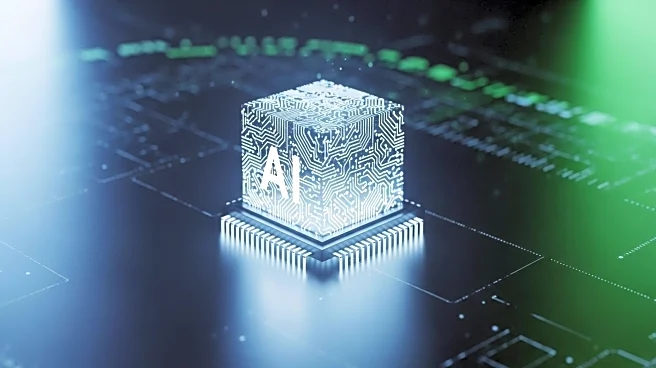What's Happening?
OpenAI has announced a partnership with Broadcom to design and develop 10 gigawatts of custom AI chips and systems. This collaboration underscores the significant power requirements associated with the growing AI industry. The deal is expected to consume as much electricity as a large city, reflecting the energy-intensive nature of AI technologies. OpenAI's ChatGPT, which now boasts 800 million weekly users, and the Sora video generation app are driving this demand. The deployment of AI accelerators and network systems is anticipated to begin in the second half of 2026. This partnership follows previous deals with Nvidia and AMD, as OpenAI seeks to expand its computing resources to accommodate its expanding user base.
Why It's Important?
The partnership between OpenAI and Broadcom is significant due to the increasing energy consumption associated with AI technologies. According to a Department of Energy report, data centers are projected to consume between 6.7% and 12% of total U.S. electricity by 2028, up from 4.4% in 2023. This deal highlights the environmental impact of AI, as the power required for AI operations continues to grow. The collaboration also positions OpenAI to have a more substantial role in the hardware development necessary for AI services, potentially enhancing the capabilities and intelligence of its offerings. Broadcom's shares surged following the announcement, indicating positive market reception.
What's Next?
The deployment of AI accelerators and network systems is scheduled for the second half of 2026. As OpenAI continues to expand its infrastructure, it may face scrutiny regarding the environmental impact of its operations. Stakeholders, including environmental groups and policymakers, may push for more sustainable practices in AI development. Additionally, OpenAI's move to create custom AI accelerators could lead to advancements in AI capabilities, potentially influencing the competitive landscape in the tech industry.
Beyond the Headlines
The partnership raises ethical considerations regarding the environmental footprint of AI technologies. As AI becomes more integrated into daily life, the balance between technological advancement and sustainability will be crucial. The development of energy-efficient AI systems could become a priority for companies and regulators alike, shaping future policies and industry standards.










